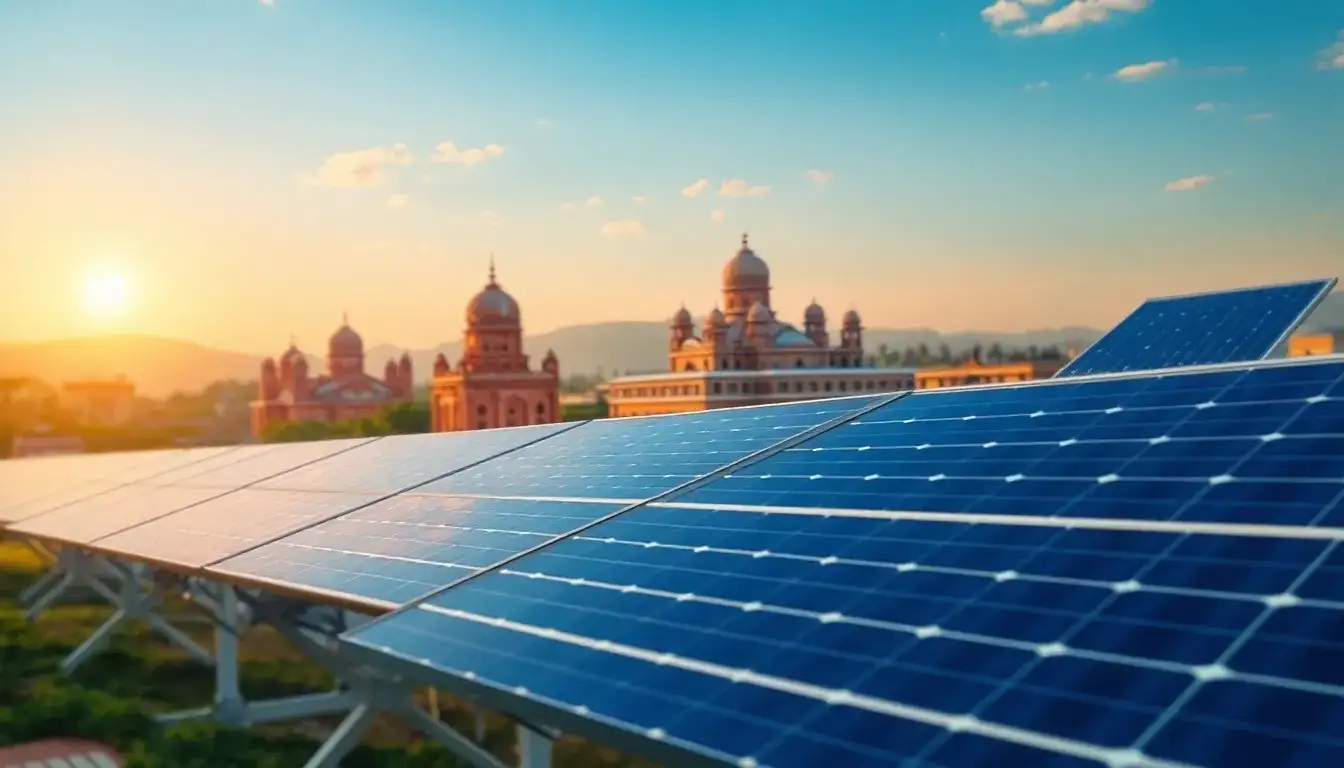
Daily News Wrap-Up: Two-Hour Energy Storage Integration Mandated for Solar Tenders
The Ministry of Power has mandated that all renewable energy agencies and state utilities incorporate a minimum two-hour co-located energy storage system, equivalent to 10% of the installed solar capacity, in all solar tenders. The Ministry further stated that distribution licensees might also require two-hour storage for rooftop solar installations. If these mandates are implemented, the government anticipates approximately 14 GW/28 GWh of storage to be installed by 2030.
In a recent announcement, the Rajasthan government revealed that beneficiaries of the Chief Minister Free Electricity Program will now receive 150 units of free monthly electricity. State Finance Minister Diya Kumari made this announcement while presenting the state budget for 2025-2026. Under the PM Surya Ghar: Muft Bijli Yojana, the government plans to install free rooftop solar systems for beneficiaries who were previously receiving 100 units of free electricity.
The Power Grid Corporation of India has invited bulk contract bids to supply and install 7 MW of rooftop solar systems on its buildings in the northern and western regions under the PM Surya Ghar: Muft Bijli Yojana. The northern region will account for a total capacity of 4 MW, while the western region will have a total capacity of 3 MW, covering states including Gujarat, Madhya Pradesh, Dadra and Nagar Haveli, Daman and Diu, Maharashtra, Goa, and Chhattisgarh.
Additionally, the Assam Power Distribution Company has issued bids to establish rooftop solar projects with a cumulative capacity of 134 MW across government buildings under the PM Surya Ghar: Muft Bijli Yojana. The distribution of capacity includes 76 MW in lower Assam, 31 MW in central Assam, and 27 MW in upper Assam. Bids are due by March 11, 2025, with the opening scheduled for March 12. The project scope includes design, supply, installation, testing, and commissioning.
Rooftop solar financing company Credit Fair secured $5 million (₹415 million) from the $75 million (₹6.22 billion) ‘Green Basket Bond’ issued by Symbiotics Investments. The funds will be used to finance 2,500 rooftop solar projects targeting residential customers, micro, small, and medium enterprises, as well as housing societies in tier-2 and tier-3 cities. Credit Fair also aims to provide financing options to underserved communities to enhance access to renewable energy.
The Ministry of Heavy Industries has signed a program agreement with Reliance New Energy Battery, a subsidiary of Reliance Industries, for a capacity of 10 GWh under the Production Linked Incentive (PLI) Program for Advanced Chemistry Cell (ACC). This agreement brings the total allocated capacity to 40 GWh across four firms out of a total of 50 GWh. The initial bidding for the ACC Energy Storage PLI Program concluded in March 2022, with 30 GWh awarded to Ola Electric Mobility (20 GWh), Reliance New Energy (5 GWh), and Rajesh Exports (5 GWh).
Borosil Renewables reported a net loss of ₹300.7 million (~$3.46 million) in the third quarter (Q3) of the financial year (FY) 2025, compared to a loss of ₹158.9 million (~$1.83 million) in Q3 FY 2024. The increased loss was attributed to a significant drop in average selling prices of solar glass, which fell from ₹113 (~$1.3)/mm in Q2 FY 2025 to ₹108 (~$1.2)/mm in Q3 FY 2025, driven by price cuts from Chinese exporters and decreased ocean freight costs. The company’s revenue for the quarter was ₹3.61 billion (~$41.52 million), reflecting a 9.4% year-over-year growth but a 3.1% quarter-over-quarter decline.
Government-owned power generation company SJVN reported a revenue increase to ₹7.61 billion (~$87.52 million) in Q3 FY 2025, marking a 25% year-over-year rise from ₹6.08 billion (~$69.92 million). Revenue from renewable energy sources (wind and solar) surged by 265% year-over-year to ₹530.2 million (~$6.09 million), up from ₹145.3 million (~$1.67 million). The company’s net profit rose by 7% to ₹1.49 billion (~$17.13 million), compared to ₹1.39 billion (~$15.98 million) in the same quarter of FY 2024.
Original article by NenPower, If reposted, please credit the source: https://nenpower.com/blog/new-mandate-requires-two-hour-energy-storage-for-solar-tenders-in-india-2/


